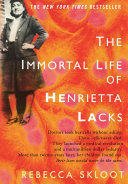
From "The Immortal Life of Henrietta Lacks"
George Gey's Final Battle and Scientific Dedication
Key Economic Insight
In late spring 1970, at age 71, George Gey was diagnosed with an aggressive, inoperable pancreatic cancer. Despite his terminal condition, his primary concern was to contribute to science. He instructed his surgeons to take samples of his tumor to create a new immortal cell line, which he hoped to name 'GeGe', similar to Henrietta's cells. He urged his lab staff to 'Work all day and night if you have to' to establish this line. However, surgeons found the cancer had spread extensively to his stomach, spleen, liver, and intestines, deeming it inoperable and making biopsy too risky. They sewed him up without taking samples, leaving Gey furious that his death would not directly advance scientific understanding through his own cells.
Undeterred, Gey immediately began contacting cancer researchers nationwide after recovering from surgery, actively seeking out anyone conducting pancreatic cancer research who needed a patient for experimentation. He received numerous responses from known colleagues and unknown scientists. In the three months between his surgery and his death, he underwent experimental treatments, including a Japanese drug at the Mayo Clinic that caused severe illness, participation in another study at Sloan-Kettering in New York City, and chemotherapy at Hopkins using a drug not yet approved for human use. Though once 6.5 feet tall and 215 pounds, his condition rapidly deteriorated, leading to constant pain, vomiting, and reliance on a wheelchair.
Despite his declining health, Gey continued working in his lab and corresponding with colleagues until his death on November 8, 1970. Before his passing, he reportedly told his former assistant, Mary Kubicek, that Henrietta's name could be released if asked, as many years had passed, though Kubicek never did so. A few months after his death, his colleagues, including Howard Jones and Victor McKusick, published a tribute in 'Obstetrics and Gynecology.' This article celebrated Gey as a 'genius' whose timing was crucial for scientific discovery and credited him with the success of the HeLa cell line, which they noted had achieved 20 years of 'immortality' and, 'if allowed to grow uninhibited under optimal cultural conditions, [HeLa] would have taken over the world by this time.'
📚 Continue Your Economic Learning Journey
Access the complete The Immortal Life of Henrietta Lacks summary with audio narration, key takeaways, and actionable insights from Rebecca Skloot.